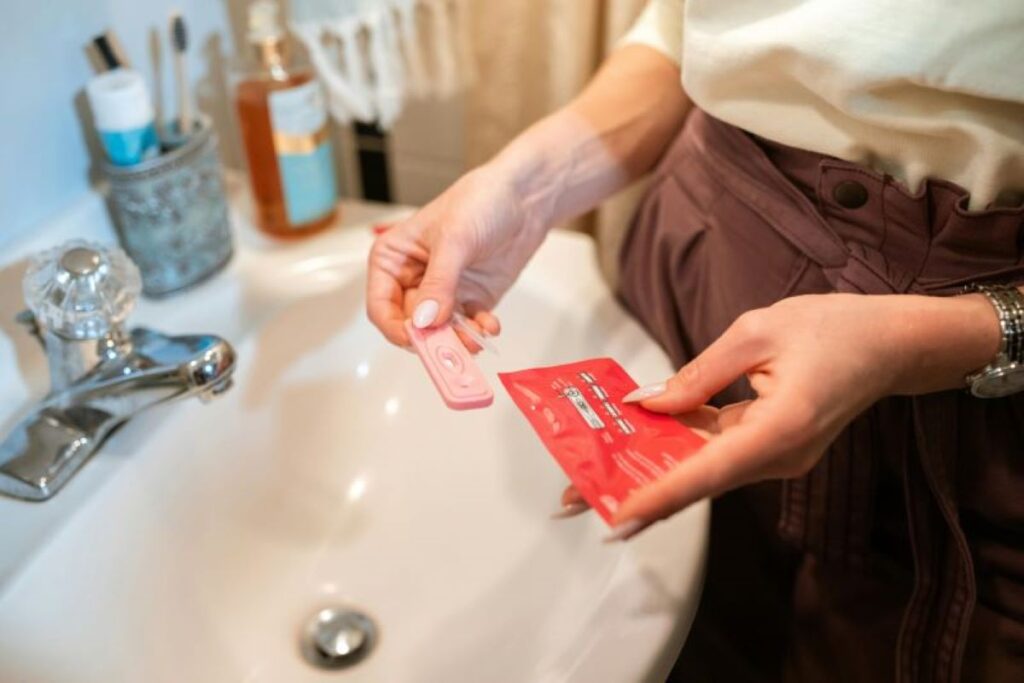“It was a huge relief to have what I had known for almost a decade finally confirmed”
Eight years and ten months… This is the average time it takes for someone with endometriosis to receive a diagnosis after their first GP appointment. Each passing 24 hours that crawl towards a formal confirmation of the disorder is often filled with agony, discomfort, and upset, and those are just the mental symptoms.
The condition is widely misunderstood, with most people defining it as synonymous with heavy periods and trouble conceiving. But for the 1.5 million girls and women in the UK who live with the disease, it is so much more than this.
Having to consider egg freezing at such a young age is definitely a tough one!”
From painful sex to chronic pelvic pain, this illness can dictate someone’s whole life from how long they leave the house when on their period to how they plan to have a family.

Elena Day , 24 , from Kent, first experienced symptoms of endometriosis in secondary school, and after a long decade of appointments and procedures, she finally received the confirmation she so desperately needed back in 2023.
Reflecting on the earlier years of her journey she stated: “My period cramps would lead me to have to take a handful of days off every month and I would regularly bleed through my school uniform.”
Ms Day was put on the pill at age 14 as well as another medication to help reduce bleeding. However, aged only 18, her symptoms became unmanageable. She said: “I would be in huge amounts of pain during and after sex and bleed afterwards and constantly get UTIs.
“I went to the doctors several times and explained my symptoms, however the response was always I was to young to have endo.”
Leaving Whitstable and moving to London in 2023, Elena’s medical journey followed the move where it finally reached a much needed resolution and it was at this point she believed her experience was finally taken seriously.
She continued: “ I was referred to have diagnostic treatment, I had internal and external ultrasounds and a bladder biopsy that all returned normal.
“It was hugely frustrating, but thankfully my gynaecologist was fantastic and in February I had a laparoscopy which was finally able to diagnose me with endo.”
Ms Day was eventually found with an ovary fused to her bowel and two growths on her womb.
She said: “It was a huge relief to have what I had known for almost a decade finally confirmed, and whilst I still have some symptoms and pain, my life has been greatly improved.”
View this post on Instagram
Earlier this month, a new medication named linzagolix was approved for use on the NHS and will be the second available at-home treatment for endometriosis patients.
Responding to this news, Ms Day believes this new pill is a great new addition to endometriosis treatment plans, especially for those who haven’t found something that works yet.
She shared: “If it helps to alleviate the symptoms for those suffering then its nothing but a success.”
Like Ms Day, Charlotte Scott ,21, from Canterbury has recently been diagnosed with endometriosis, and whilst it was a long and complicated process, she is glad she went through with it.
Sharing her whirlwind of a journey she stated: “I already have PCOS which took two years to get officially diagnosed through the NHS as they lost my scans and cancelled upwards of 20 appointments so my trust in doctors was already not the best.”
After raising concerns over sharp pains in her side and low mood Ms Scott was sent away from the doctor with the explanation that it would simply go away.
However when the symptoms got more frequent she went back to the NHS who explained it could be related to birth control or stress. With these answers not matching the chronic pain she was in, she went private and got referred to a specialist where she received an ultrasound that came back almost completely normal.
She continued: “Then I got sent for an MRI which showed minor swelling, so I underwent a laparoscopy.”
Despite beginning to feel crazy after experiencing so many symptoms but seeing no obvious reason why, the results from the surgery showed Ms Scott had stage four endometriosis.
Whilst she has accepted the diagnosis, she believes the biggest challenges now lie in the concerns for her future.
She said:“Having to consider egg freezing at such a young age is definitely a tough one!”
Like Ms Day, Ms Smith believes the new medication, linzagolix, will benefit many, however this isn’t without reservations.
She expressed her concerns stating: “I think because of the novelty and pressure to come up with the treatment I’m concerned about the long term effects in terms of fertility or comorbidities. I worry it’s a quick fix.”
If you or someone you know is experiencing the signs or symptoms associated with endometriosis, Ms Smith said: “Trust what you’re experiencing and don’t be afraid to ask the silly questions with your doctor because the chances are it’s all linked. Just make sure you’re continuously advocating for yourself and making sure you get the best treatment.
“And try to look for people in the similar situation because it really helps to have that support from people who have had similar experiences.”
If you are experiencing associated symptoms or have just received an endometriosis diagnosis, resources can be found on the following pages:
Ending endometriosis starts by saying it | Endometriosis UK
Choosing period products | NHS inform
For more information on linzagolix click here
Feature image credit Pexels
The name Charlotte Scott is a pseudonym for an interviewee who requested anonymity.
